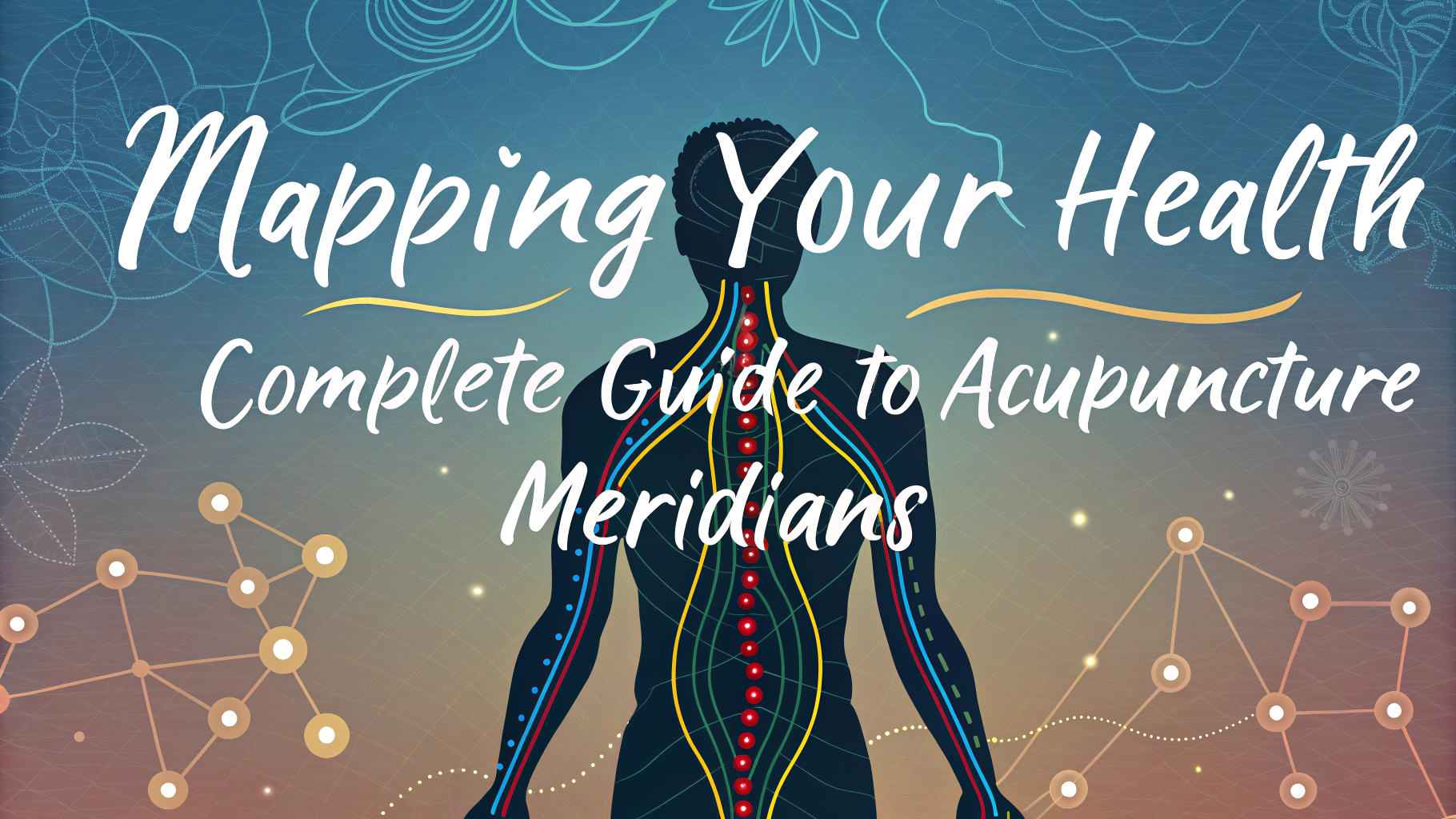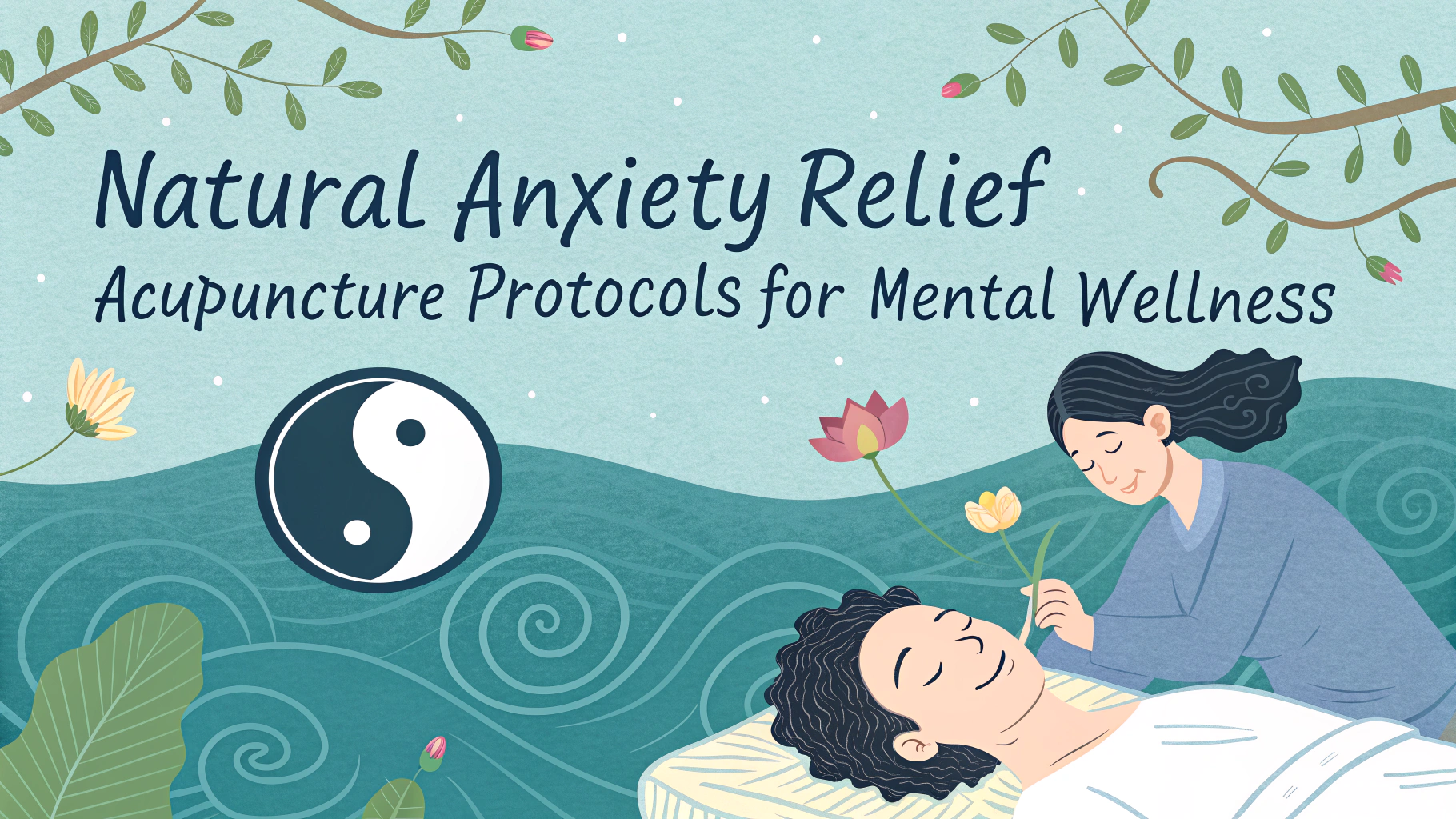Acupuncture offers promising benefits for respiratory health by targeting specific points that can help improve breathing, reduce inflammation, and strengthen the immune system.
Research shows that regular acupuncture sessions may help alleviate symptoms of common respiratory conditions like asthma, allergies, bronchitis, and sinusitis.
This article explores how acupuncture works for respiratory health and provides practical guidance for those considering this traditional Chinese medicine approach.
How Acupuncture Benefits Respiratory Health
- Reduces inflammation in airways
- Strengthens immune system function
- Decreases mucus production
- Relieves chest congestion
- Improves breathing capacity
Common Respiratory Conditions Treated
Condition
Expected Benefits
Asthma
Reduced frequency of attacks, improved breathing
Allergies
Decreased inflammatory response, fewer symptoms
Sinusitis
Better drainage, reduced congestion
Bronchitis
Enhanced recovery, reduced inflammation
Key Acupuncture Points for Respiratory Health
The Lung 7 point (located on the forearm) helps strengthen the lungs and boost immunity.
The Large Intestine 4 point (found on the hand) reduces inflammation and supports overall immune function.
The Stomach 36 point (located below the knee) enhances energy and strengthens resistance to respiratory infections.
Treatment Schedule Guidelines
- Acute conditions: 2-3 sessions per week for 2-3 weeks
- Chronic conditions: 1-2 sessions per week for 6-8 weeks
- Maintenance: Monthly sessions
Finding a Qualified Practitioner
Look for certification from the National Certification Commission for Acupuncture and Oriental Medicine (NCCAOM).
Contact your state’s acupuncture board for licensed practitioners (www.nccaom.org/state-licensure/).
Schedule an initial consultation to discuss your specific respiratory concerns and treatment goals.
Preparing for Your Treatment
- Eat a light meal 2 hours before treatment
- Wear loose, comfortable clothing
- Bring medical history and current medication list
- Plan to rest after the session
Combining Acupuncture with Other Treatments
Acupuncture works well alongside conventional medical treatments for respiratory conditions.
Consider complementary approaches like herbal medicine, breathing exercises, and dietary modifications.
Moving Forward with Respiratory Health
Track your symptoms and response to treatments to help determine the most effective treatment schedule.
Maintain open communication with both your acupuncturist and primary care physician about your treatment progress.
Regular acupuncture sessions, combined with lifestyle modifications, can provide long-term support for respiratory health.
Lifestyle Modifications for Enhanced Results
- Practice regular deep breathing exercises
- Maintain proper indoor air quality
- Stay hydrated with warm liquids
- Avoid known respiratory irritants
- Exercise moderately to strengthen lung capacity
Monitoring Progress and Adjusting Treatment
Keep a symptom diary to track improvements and potential triggers.
Work with your practitioner to adjust treatment frequency based on your response.
Document any changes in medication needs or breathing patterns.
Signs of Progress
- Reduced frequency of symptoms
- Improved sleep quality
- Better exercise tolerance
- Decreased medication dependency
Building a Long-term Wellness Strategy
Regular acupuncture maintenance treatments help prevent respiratory issues from recurring.
Develop a comprehensive health plan that includes:
- Seasonal acupuncture tune-ups
- Appropriate exercise routines
- Dietary modifications
- Stress management techniques
Empowering Your Respiratory Health Journey
Integrating acupuncture into your respiratory health care routine can provide significant benefits for both acute and chronic conditions.
Stay committed to your treatment plan while maintaining open communication with your healthcare providers.
Remember that lasting improvements in respiratory health often require a combination of treatments, lifestyle changes, and consistent self-care practices.
FAQs
- How does acupuncture help improve respiratory health?
Acupuncture helps respiratory health by reducing inflammation in the airways, improving lung function, boosting immune response, and promoting better oxygen flow throughout the body. - Which respiratory conditions can acupuncture treat?
Acupuncture can help with asthma, bronchitis, allergies, sinusitis, chronic cough, shortness of breath, COPD, and respiratory infections. - How many acupuncture sessions are typically needed for respiratory issues?
Most patients require 6-12 sessions initially, with treatments scheduled 1-2 times per week. Chronic conditions may require ongoing maintenance sessions. - Which acupuncture points are commonly used for respiratory health?
Key points include Lung 7 (Lieque), Large Intestine 4 (Hegu), Lung 1 (Zhongfu), and Conception Vessel 17 (Shanzhong), among others targeting the lung and respiratory meridians. - Can acupuncture be combined with conventional respiratory treatments?
Yes, acupuncture works well as a complementary therapy alongside conventional treatments like inhalers, medications, and respiratory therapy. - Are there any side effects of acupuncture for respiratory conditions?
Side effects are generally minimal but may include slight bruising, minor soreness at needle sites, and temporary fatigue after treatment. - How quickly can I expect to see results from acupuncture for respiratory issues?
Some patients experience immediate relief, but typically improvements are noticed after 3-5 sessions. Chronic conditions may take longer to show significant improvement. - Is acupuncture safe for children with respiratory problems?
Yes, acupuncture is safe for children when performed by a licensed practitioner, though different techniques or needle-free methods may be used for young patients. - Can acupuncture help prevent respiratory infections?
Regular acupuncture treatments can strengthen the immune system and improve lung function, potentially reducing the frequency and severity of respiratory infections. - What should I do to prepare for an acupuncture session for respiratory health?
Wear loose, comfortable clothing, eat a light meal beforehand, avoid alcohol and caffeine, and bring any relevant medical records or respiratory test results.
Author: AcupunctureMy
Related Posts
Acupuncture Research Standards
Research Corner
|
methodology, science
Research standards in acupuncture have evolved significantly over the past decades to ensure reliable, evidence-based results that can be replicated across different studies. The integration of modern scientific methods with ... Read more

Understanding Treatment Duration
Treatment Guides
|
expectations, planning
The length of an acupuncture treatment plan varies significantly based on individual health conditions and treatment goals. A typical acupuncture session lasts between 30-60 minutes, with the needles remaining in ... Read more

Traditional Chinese Medicine Weather Theory
Fundamentals
|
environment, health
Traditional Chinese Medicine (TCM) recognizes intricate connections between weather patterns and human health, developing sophisticated frameworks for understanding these relationships over thousands of years. Weather changes can significantly impact our ... Read more

Acupuncture for Sinus Health
Conditions Treated
|
allergies, respiratory
Acupuncture offers a time-tested approach to managing sinus problems by targeting specific pressure points that can help relieve congestion, reduce inflammation, and restore proper sinus function. Traditional Chinese Medicine views ... Read more

Understanding Point Selection
Fundamentals
|
technique, theory
Point selection stands as one of the most important aspects of effective acupuncture treatment. Skilled practitioners combine traditional wisdom with modern understanding to identify the optimal points for each patient’s ... Read more

Treating Computer-Related Pain
Conditions Treated
|
ergonomics, pain
Computer-related pain affects millions of people who spend long hours working at their desks. Acupuncture offers a natural, effective treatment option for various musculoskeletal issues that develop from prolonged computer ... Read more

Acupuncture for Lymphatic Health
Conditions Treated
|
circulation, immunity
Acupuncture offers a time-tested approach to supporting lymphatic health through strategic needle placement and gentle stimulation techniques. This ancient Chinese medicine practice helps activate lymph flow, reduce swelling, and enhance ... Read more

Understanding Treatment Intervals
Treatment Guides
|
frequency, scheduling
Treatment intervals for acupuncture can significantly impact the effectiveness of your healing journey. The frequency of acupuncture sessions depends on your specific health condition, severity of symptoms, and overall treatment ... Read more

